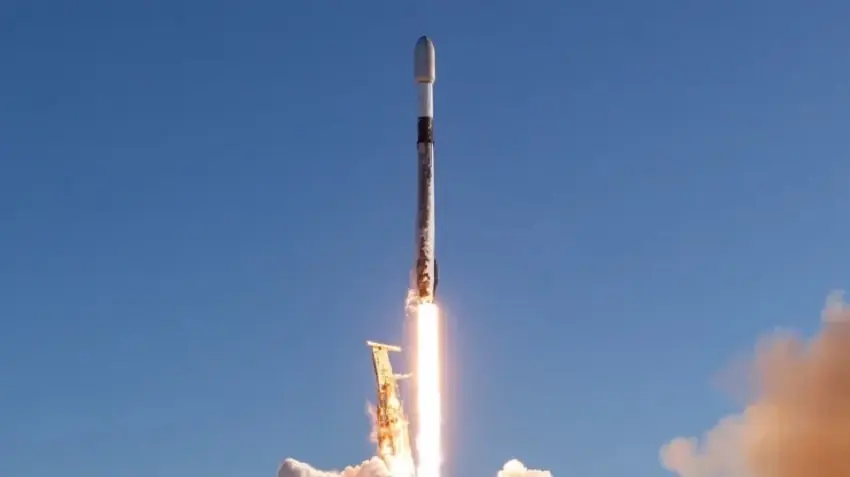
Space technology has become an integral part of our modern world, driving advancements in communication, scientific discovery, and even our daily lives. One of the most significant players in this arena is SpaceX, whose Falcon 9 rocket has revolutionized how we think about space travel. This blog post explores the latest developments involving the Falcon 9, its impact on space exploration, and what this means for the future.
The Importance of Rocket Technology in Space Exploration
Rocket technology is the backbone of space exploration. Without reliable rockets, our ambitions to explore outer space would remain grounded. Rockets like the Falcon 9 play a crucial role in launching satellites, transporting cargo to space stations, and even preparing for potential manned missions to Mars. Innovation in rocket technology not only makes these missions possible but also drives down costs, making space more accessible to a broader range of entities, including private companies and researchers.
A Closer Look at SpaceX’s Falcon 9
The Falcon 9 is one of SpaceX’s most iconic rockets. Known for its reusability, the Falcon 9 has completed numerous missions, making it the workhorse of modern space travel. Its design includes advanced features such as the ability to return to Earth and be reused for multiple missions, which significantly reduces the cost of each launch. With a track record of over 100 successful launches, the Falcon 9 has set new standards in the aerospace industry.
Recent Green Light for Falcon 9 to Return to Space
The recent regulatory approval allowing Falcon 9 to return to space marks a significant milestone. On July 27, SpaceX announced that the Federal Aviation Administration (FAA) had given the go-ahead for the rocket to resume its operations. This decision came after a thorough investigation into an anomaly that occurred during an unsuccessful launch on July 11. The FAA concluded that there were no public safety concerns, paving the way for Falcon 9 to continue its critical missions.
Implications for Commercial Space Travel
The FAA’s approval is not just a win for SpaceX but also for the broader commercial space industry. With Falcon 9 back in action, the schedule for satellite launches and commercial missions can proceed without delay. This development ensures that businesses and governments relying on these launches can continue their operations uninterrupted, reinforcing the reliability and resilience of space travel.
Expert Insights on Falcon 9’s Return
Industry experts are optimistic about Falcon 9’s return to flight. According to Dr. Emily Johnson, a leading aerospace engineer, “The quick resolution of the issue showcases SpaceX’s commitment to safety and innovation. Falcon 9’s return will undoubtedly accelerate upcoming missions and foster further advancements in space technology.”
Advancing Space Technology with Falcon 9
Falcon 9 is not just a rocket; it’s a platform for innovation. Its reusability has already saved millions of dollars in launch costs, and its performance has proven critical for missions ranging from satellite deployments to crewed missions to the International Space Station (ISS). The rocket’s ability to carry heavy payloads and return safely for reuse sets it apart from its competitors.
The Future of Satellite Deployment
One of Falcon 9’s primary roles is deploying satellites into orbit. These satellites are essential for various applications, including communication, weather forecasting, and navigation. The rocket’s reusability ensures a steady and cost-effective stream of launches, enabling continuous advancements in satellite technology and services.
Enhancing Human Presence in Space
Falcon 9 plays a pivotal role in advancing human spaceflight. It is currently the only US rocket capable of transporting NASA crews to the ISS. With its reliability and safety record, Falcon 9 is instrumental in ensuring that astronauts can reach the space station and return home safely. This capability is crucial as we look towards future missions to the Moon and Mars.
SpaceX’s Commitment to Safety and Innovation
Safety is paramount in space travel, and SpaceX’s handling of the recent anomaly demonstrates their dedication to maintaining the highest standards. The quick identification and resolution of the issue, along with the FAA’s approval, highlight SpaceX’s robust safety protocols and commitment to innovation.
Community Impact and Educational Opportunities
The advancements made by Falcon 9 and SpaceX have far-reaching impacts beyond just the aerospace industry. These innovations inspire the next generation of scientists, engineers, and space enthusiasts. Educational programs and community outreach initiatives by SpaceX help foster interest in STEM fields and encourage young minds to pursue careers in space technology.
The Broader Space Community and Falcon 9
The return of Falcon 9 is a significant event for the global space community. It reinforces the importance of collaboration and shared goals in advancing space exploration. Whether it’s international partnerships or contributions from private enterprises, the collective effort helps push the boundaries of what is possible.
Summary of Key Points
The return of SpaceX’s Falcon 9 rocket is a landmark moment in modern space exploration. With its innovative design, proven track record, and recent FAA approval, Falcon 9 continues to be a critical asset for both commercial and scientific missions. The rocket’s ability to reduce costs through reusability and its role in advancing human spaceflight make it a key player in the future of space travel.
Engage with Us
We invite readers to share their thoughts and questions about Falcon 9 and its role in space exploration. Engage with our content, join the conversation, and stay updated on the latest developments in space technology.
SpaceX’s Falcon 9 rocket is not just changing how we think about space travel; it’s making it more accessible and sustainable for the future. Join us in celebrating this remarkable achievement and look forward to what lies ahead in the final frontier.


